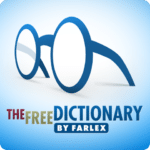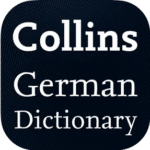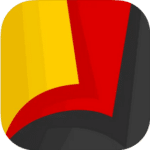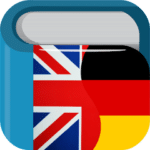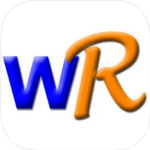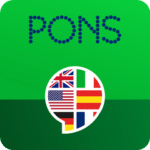
16 Best German Dictionary Apps in 2024
A good dictionary app is a total necessity when you’re learning German, and thanks to technology, you’ve got plenty of choices for both dictionary apps and the websites for traditional dictionaries today.
But because there are so many choices now, choosing the right one can be difficult. That’s why we’ve looked into the top 16 options to see which ones are the best for German learners and speakers. We also go over the unique features of each dictionary and who each one is best for.
Read on to read all the details on German dictionary apps and German dictionaries, and never let an unknown German word go undefined again!
Contents
- Best German Dictionary Apps
- Web-based German Dictionaries Made by Everyday German Speakers
- Regional German Dictionaries
- Official German Dictionaries (Online and Printed)
- And One More Thing...
Download: This blog post is available as a convenient and portable PDF that you can take anywhere. Click here to get a copy. (Download)
Best German Dictionary Apps
1. Dict.cc
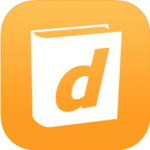
Price: Free
This dictionary app is available in 51 language combinations, so if you speak Spanish as well as English, for example, you can look up German translations in both languages! Simply download the language pack for each language you want to search in, and you can search words offline at any time. So even when you don’t have internet access or cell reception, this app will never leave you stranded without a dictionary.
Dict.cc gives you the option to listen to the pronunciation of each word, and its extensive definitions include context-specific word use and identification of regional dialects. It also features a user-friendly search bar that suggests possible searches as you type, and word look-up in both of your selected languages. Dict.cc also stands out due to its clean, minimal graphics. No clutter or distracting typefaces here, just a cheerful color scheme and an easy-to-navigate layout.
Unique feature: Dict.cc includes a wide variety of phrases and idioms in its dictionary, which means that you can search an idiomatic German phrase and find out not only what it literally means, but also see its English equivalent.
Best for: This app’s huge variety of languages makes it a great choice for multilingual people who want to see German translations in more than one language. It’s also handy for travelers who may want to look up English translations for languages other than German. If you’re an English speaker traveling throughout Europe, Dict.cc should cover most of your translation needs!
2. FluentU
Price: Free trial available (pricing page available here)
The dictionary feature on FluentU is unlike any other. Its entries are words and phrases used in video clips from authentic German media such as TV shows, movies and news segments.
You can choose videos to watch based on your language level and interests and pick up new vocabulary through the interactive subtitles (available in German and English). Or, you can search for a specific word you want to learn and find videos where it’s used in natural contexts.
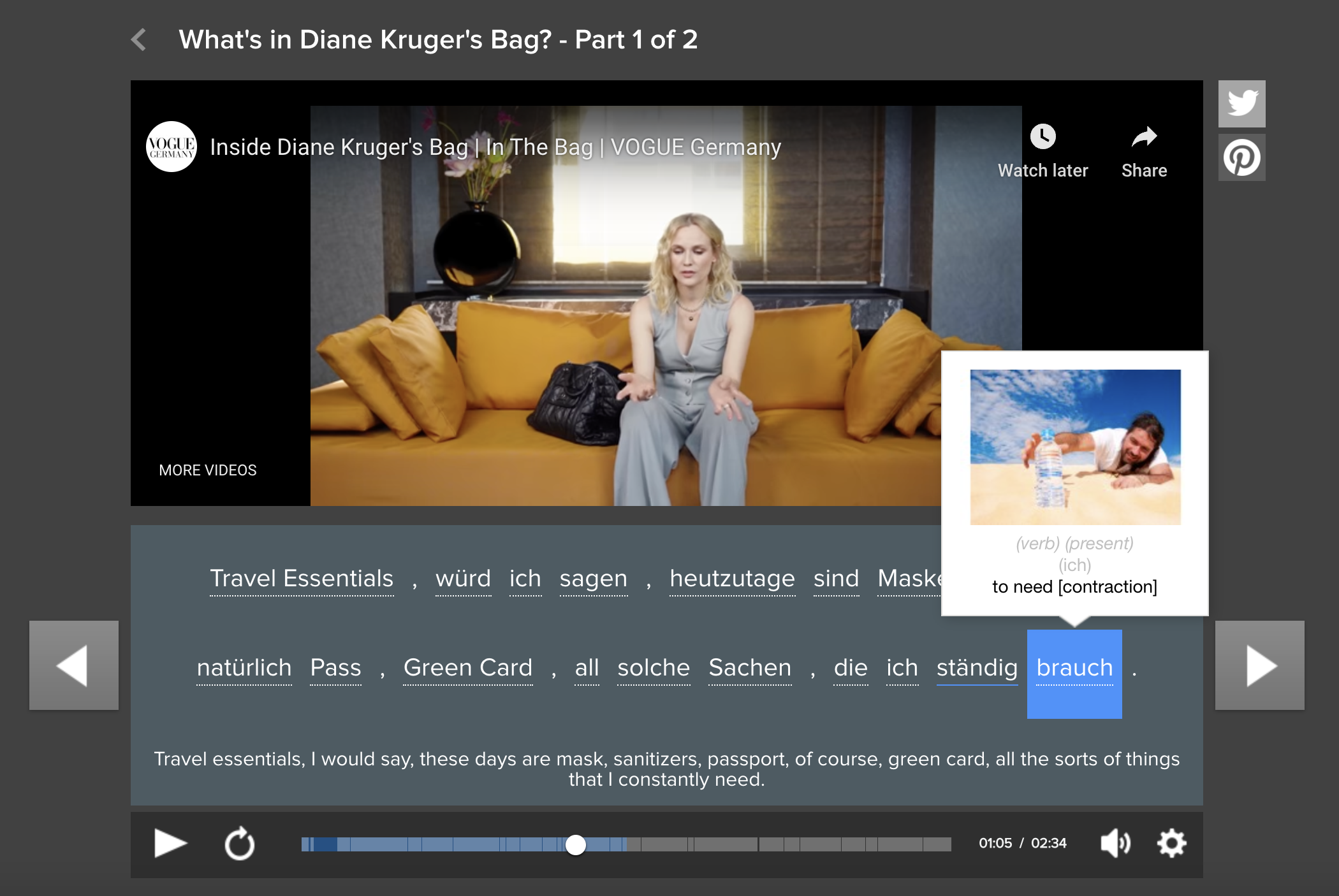
Each dictionary entry includes the word’s translation, part of speech and a corresponding image. You’ll also get example sentences and videos where it’s used. Both the word and example sentences come with audio pronunciation by a native speaker, which you can play at normal or slow speed.
Unique feature: The app’s flashcard feature and personalized quizzes help you review new words and add them to your vocabulary, going well beyond your typical dictionary’s capabilities.
Best for: Audio-visual learners who enjoy learning through media like videos and images. This app is also a good choice if you struggle to actually use new words in conversations, since FluentU gives you the confidence you need by showing you how native German speakers use words in many different situations.
3. German Translator Dictionary by VidaLingua
Price: Free
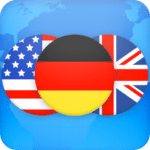
This dictionary app is a phrasebook, dictionary and quiz game rolled into one! The extensive phrase section offers German learners a great variety of conversation starters and essential phrases sorted by topics ranging from shopping to flirting to the weather. The phrases can be listened to in both English and German. The quiz game allows you to sneak in some speedy German practice on-the-go by matching English words to their German equivalents.
Last but not least, VidaLingua’s dictionary also offers a list of verbs separate from the regular dictionary, which could be helpful for students doing test review—or for when you get tired of trying to memorize all those tricky German articles, and just want to learn some new verbs instead. VidaLingua also offers a search bar prompter and word look-up in both English and German.
Unique feature: This app has a search history function that allows you to see the past few words you’ve looked up. This is super handy for when you look up a new German word and then forget the meaning a second later (it happens to all of us sometimes).
Best for: Total beginners who aren’t yet sure how to pronounce many words will really benefit from VidaLingua’s phrasebook feature. This is especially useful for new learners traveling in a German-speaking country, as it can help with everything from ordering a Bratwurst to finding the tourist information bureau. The quiz game also makes this app a good choice for the busy German student who wants to make vocabulary practice a bit more fun.
4. LEO Dictionary
Price: Free (with in-app purchases)
This app features cute lion graphics and neatly organized search results, as well as a search bar prompter. LEO dictionary also includes a Forums section where registered users can discuss questions about spelling, grammar and translation with other users — and also chat about German culture. So LEO dictionary isn’t only functional, it’s social too.
Swiping left on search results allows you to see similar words in the source language (useful in case you’ve looked up the wrong word by accident). Swiping right displays related forum discussions. LEO allows you to search online for German translations of words in eight different languages, including English, and will offer word definitions in the opposite language without you having to choose the search direction.
Unique feature: LEO Dictionary has a built-in voice lookup that allows you to search by simply speaking into your phone. This is pretty useful when you’re too busy to type, or if you’re not sure how to spell the word you’re looking up.
Best for: German learners who want to connect and chat with other learners will love the LEO Dictionary. It’s like having a German conversation class on your phone! This app is also a good choice for those who prefer talking into their phones over typing.
5. The Free Dictionary by Farlex
Price: Free (with in-app purchases)
Although this app isn’t specifically targeted at language learners, if you have some German knowledge already and are looking to work on reading comprehension, Farlex Dictionary can be a huge help. When you search a German word in Farlex’s German dictionary, you’ll be presented with a detailed definition in German (and you can also scroll down to see an English translation). So this app gives you a great chance to practice your reading comprehension while you’re looking up new words.
Even German beginners can benefit from this app, as the accompanying English translations will help you out if you don’t fully understand the German explanation. Farlex Dictionary also includes comprehensive definitions in 14 different languages, which can be useful if you’re learning another language or if you just need to look up the meaning of an English word.
Unique feature: Farlex Dictionary comes with a homepage that you can personalize to include fun stuff like a mini weather report and a word game. The word game, Galgenmännchen (the German version of Hangman, a popular English word-guessing game) is actually very addictive. A bonus is that it gives you an option to go to the definition of the word after the game is done, providing a fast and fun way to learn new German words.
Best for: This app will prove useful for advanced German learners. If you’re at that learning level where you still need to look up German words often, but you can usually understand German definitions, this is a great app for you. The German language definitions will help you improve your German knowledge, and the English translations will ensure that you understand exactly what words mean.
6. Collins German Dictionary
Price: $14.99
This helpful app offers a hugely comprehensive dictionary (over 80 000 words and phrases!) that can be downloaded to your phone for offline use at any time. Perfect for beginners and more expert German students, Collins Dictionary includes a wide range of fun and useful bonuses, such as a Word of the Day, and several different word games: Hangman, Anagrams and Word Scramble. It also features a History page where you can view recent searches.
The clear and neatly-laid out definition pages make it easy to find exactly what you’re looking for, and definitions are modern and very thorough, helping you put terms in the right context and figure out their connotations. And in case you want to save and remember important words, Collins Dictionary lets you create a Favorites list, where you can store words you might need to look up later.
Unique feature: One really cool aspect of this dictionary stands out: the search filters. Collins Dictionary lets you search by “Keyword” in order to find key words in compound words, and also searches for words you aren’t sure how to spell! This is such a huge help when you’re a language beginner. By using this app’s “Fuzzy” filter, you can always find the word you’re looking for eventually, even if you’ve mixed up a bunch of letters.
Best for: If learning new German vocab through games on your cellphone sounds like a dream come true, Collins Dictionary is just what you need! Teaching yourself vocab can seem like a boring task, but suddenly it’s a whole lot more fun when you add a bit of a competitive edge. In general, those who are studying German independently and like to learn through technology will get a lot out of this app.
7. German Dictionary by Netzverb® Deutsch
Price: Free (with in-app purchases)
Netzverb® Deutsch’s dictionary features over 160,000 German words including nouns, pronouns, verbs, adjectives and even articles. If you’re using the web version, you’ll notice that the words are also labeled according to the CEFR difficulty levels (e.g., A1 for complete beginners, A2 for upper beginners, B1 for lower intermediates and so on).
Also, I like how this app highlights the stem and ending form of each word. As you know, conjugation is one of the hardest parts of learning a new language, and having that visual guide to changing all those words into their appropriate forms makes it much easier to digest new vocab and pick up vital grammar points.
Unique feature: If you enter any word in the search field via the conjugator, you’ll instantly get detailed information on what the verb looks like in all of its possible conjugations—present, imperfect, imperative, infinitive, etc. This will definitely come in handy the next time you get stuck on a German word and how to use it correctly!
Best for: If you’re struggling with vocabulary and grammar and are more of a visual learner, this particular German dictionary may be just what you’re looking for.
8. German English Dictionary & Translator by Bravolol
Price: Free (with in-app purchases)
Aside from giving detailed definitions, this dictionary also gives example sentences where that word can be used. If you’re looking for similar or related words, you’ll also find a ton of them via Bravolol’s German-English dictionary.
In case you want to stow your newly acquired vocab for a rainy day, you can take advantage of the flashcard feature too. You can bookmark all of the words you’ve learned or want to learn for your future reference. And if the font is either too small or large for comfort, you can easily adjust it until your eyes feel better!
Unique feature: The wildcard character feature is definitely handy when you have that one word on the tip of your tongue (or the back of your mind), but you just can’t seem to remember for the life of you what it’s supposed to look or be spelled like! This option is available in both German and English.
Best for: I think this is one of the more well-rounded German dictionary apps on the list. It has audio (in both German and English), flashcards, the ability to store your favorite words away and related search suggestions. What more could you want?
9. WordReference
Price: Free
This isn’t strictly just an English-German dictionary (you have to change the language settings in the dropdown menu), but it does the job if you’re an English or Spanish speaker. As of this writing, you can only directly translate to and from English/Spanish to German.
Still, if you’ve ever looked up any word online (German or otherwise), chances are WordReference is one of the sites that popped up on the first page. And that’s for good reason: look up any word, and you’ll get its definition, pronunciation, inflections, example sentences in both your target language and German and all possible uses of the word.
Unique feature: If you scroll to the bottom of the page of each word you search for, you’ll see links to forums. There, you can find other users discussing the word and how it should be used. The social aspect this dictionary provides can make learning a lot less lonely!
Best for: WordReference is one of the most comprehensive dictionaries available, so if learning every possible meaning of a single word you look up appeals to you, keep WordReference handy in your pocket (or phone).
10. PONS Translate
Price: Free (with in-app purchases)
Another one that isn’t strictly a German-English (or English-German) dictionary is PONS Translate. Despite the name, this isn’t just a translator: it’s also integrated with a dictionary function. There are plenty of ways to look up any word you want—you can type, say or even scan words from signs you come across!
If you’re also using the PONS Vocabulary Trainer app, you can copy the translations there for your future reference. And if you happen to lose your internet connection for any reason, you can still access all that necessary vocab for review.
Unique feature: I like the bit where you can scan German words you spot on a restaurant menu, road signs, etc. German often uses diacritics which can be quite time-consuming to look up if you’re using an English keyboard, so this feature definitely saves a lot of time!
Best for: If you travel a lot, the app’s ability to translate words you scan (as opposed to type) can make those vacation getaways to German-speaking countries so much easier!
Web-based German Dictionaries Made by Everyday German Speakers
Unlike traditional dictionaries, these three options aren’t produced by a big publisher or German language authority. They’re actually created by and for everyday German speakers. This gives you a direct connection to real native speakers—you’ll get to see lots of up-to-date slang and you’ll glimpse Germans’ perspective on their own language.
Just be careful to cross-reference across these sites when you encounter new words—since they’re user-generated, some entries might not be 100% accurate.
11. Wiktionary in German
Price: Free
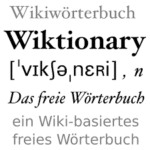 You know Wikipedia, but did you know there’s a Wiktionary? The concept is the same, in that contributors add content to the wiki and other users can edit content or comment as they think is necessary.
You know Wikipedia, but did you know there’s a Wiktionary? The concept is the same, in that contributors add content to the wiki and other users can edit content or comment as they think is necessary.
The German Wiktionary of course includes definitions for the words, but also has pronunciation with sound clips, conjugations and declinations, etymology information, sample sentences and other related words like antonyms, synonyms and compound words.
The Wiktionary also includes German sayings (e.g. “nur Bahnhof verstehen,” literally, “only understand train station,” but in English, “It’s all Greek to me.”)
Another plus-point for Wiktionary is that translations of a German word into various other languages is sometimes available at the bottom of the entry.
You can definitely fall down the Wiktionary rabbit hole and keep clicking through to learn more new words or find related information linked back to Wikipedia. If you use this Wiktionary, you’ll find everything you need to sound like a local, and you might even learn more than what a native German speaker knows about their own language.
Unique feature: Made by natives for natives, many German idioms
Best for: Culture-interested learners of German
12. Sprachnudel.de
Price: Free
 For English speakers or learners, Urban Dictionary can be a useful tool when picking up new slang and abbreviations. If you’re German or learning German, one Urban Dictionary equivalent is Sprachnudel.de.
For English speakers or learners, Urban Dictionary can be a useful tool when picking up new slang and abbreviations. If you’re German or learning German, one Urban Dictionary equivalent is Sprachnudel.de.
Users can add terms and examples using those terms, as well as vote phrases up or down depending on what they think about them. There are also links to synonyms and related words, so there’s plenty of slang to learn.
If you’re not sure where to start, Sprachnudel.de has categories on their homepage that you can browse through. Dialects, abbreviations and words taken from English are some of them.
Be aware that there may be slang words that aren’t necessarily used everywhere and also that there are many explicit words you might want to take care of using in certain situations.
Unique feature: Fun social media elements, slang focus
Best for: General learners who have an interest in slang
Regional German Dictionaries
13. Schweizerdeutsch Wörterbuch (Swiss German Dictionary)
Price: Free
 If you’re in Switzerland or just learning Schweizerdeutsch (Swiss German), you’ve probably realized that it’s somewhat different from the German spoken in Germany. It’s not just the accent, because the vocabulary and slang can be unique as well. Probably the most common example is the formal greeting of Grüezi! (Hello!) in Switzerland versus Hallo! (Hello!).
If you’re in Switzerland or just learning Schweizerdeutsch (Swiss German), you’ve probably realized that it’s somewhat different from the German spoken in Germany. It’s not just the accent, because the vocabulary and slang can be unique as well. Probably the most common example is the formal greeting of Grüezi! (Hello!) in Switzerland versus Hallo! (Hello!).
The Schweizerdeutsch Wörterbuch is perfect to learn all those differences in Swiss German, including pronunciation and new vocabulary.
The dictionary works in both directions. You can look up a word in Hochdeutsch and you’ll find the Schweizerdeutsch equivalents. Or, you can start with a Schweizerdeutsch word and see what it is in Hochdeutsch.
One downside is that there’s no pronunciation available, either via sound clips or phonetics, so you’ll have to have some familiarity to know how words are actually said.
Unique feature: Swiss German focus
Best for: Learners who want to live in Switzerland
14. Österreichisches Wörterbuch (The Austrian Dictionary)
Price: Free
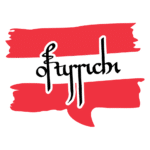 In case you’re completely new to learning German, the differences between Swiss German, Austrian German and German from Germany are similar to the differences between American, British and Australian English. Everyone understands one another, though there can be subtle differences in accent, vocabulary and slang.
In case you’re completely new to learning German, the differences between Swiss German, Austrian German and German from Germany are similar to the differences between American, British and Australian English. Everyone understands one another, though there can be subtle differences in accent, vocabulary and slang.
Contributors can add words to this dictionary, but like the Schweizerdeutsch Wörterbuch above, it’s missing the pronunciation in either a sound clip or phonetics. Therefore, if you’re trying to learn Austrian German without being familiar with pronunciation, it could be a little difficult.
On the upside, people can upvote entries if they’re familiar and also add the region in Austria where the words are used.
Unique feature: Austrian German focus
Best for: Learners who want to live in Austria
Official German Dictionaries (Online and Printed)
Despite the plethora of free, online resources available, sometimes it’s helpful to have a go-to, official dictionary. But as a student of German, you may not want to pick up a copy of a standard German dictionary since understanding definitions of words in German can be challenging. Instead, there’s a specific type of dictionary geared towards German learners—the Deutsch als Fremdsprache (German as a Foreign Language) dictionary.
15. “Langenscheidt Großwörterbuch Deutsch als Fremdsprache”
Price: Free
 The “Langenscheidt Großwörterbuch Deutsch als Fremdsprache” (“Big Dictionary of German as a Foreign Language”) is an excellent resource with over 90,000 words available. Common Austrian and Swiss German words are included, despite it being focused on Hochdeutsch.
The “Langenscheidt Großwörterbuch Deutsch als Fremdsprache” (“Big Dictionary of German as a Foreign Language”) is an excellent resource with over 90,000 words available. Common Austrian and Swiss German words are included, despite it being focused on Hochdeutsch.
In addition to having just definitions of words, this German dictionary also has some word games like crossword puzzles and word searches in the back to make use of the knowledge you’ve gained.
The benefit of a comprehensive, physical German dictionary like this is that you get a lot of extra learning resources. For example, the appendix provides info German learners would find useful or intriguing—what can a resume look like in Germany? If the country is Guatemala, what’s someone from Guatemala called? (Guatemalteke for a Guatemalan man, Guatemaltekin for a Guatemalan woman and the adjective is guatemaltekisch.)
Lastly, there are also a few grammatical points mentioned for quick reference.
Unique feature: Word games aplenty
Best for: General German learners
16. “Duden”
Price: Free
 No blog post about German dictionaries is complete without mentioning “Duden.” “Duden” is the German equivalent of the “Oxford English Dictionary” or “Merriam-Webster Dictionary,” in that every native speaker knows about it. The “Duden” Deutsch als Fremdsprache dictionary defines 20,000 words and is geared towards learners at an upper-intermediate to advanced level.
No blog post about German dictionaries is complete without mentioning “Duden.” “Duden” is the German equivalent of the “Oxford English Dictionary” or “Merriam-Webster Dictionary,” in that every native speaker knows about it. The “Duden” Deutsch als Fremdsprache dictionary defines 20,000 words and is geared towards learners at an upper-intermediate to advanced level.
Like the Langenscheidt dictionary, this one isn’t just a dictionary. It offers a lot of additional grammar and language information, including a part with maps and country names. There are also some pages devoted to correspondence, as well as numbers, measurements and times.
When it comes down to it, “Duden’s” reputation as the go-to resource for dictionaries speaks enough for itself.
Unique feature: The German authority on all things language
Best for: General learners and native speakers
Hopefully one of these great apps turns out to be the right one for you! Having a German dictionary on your phone will make looking up weird words so much easier.
And with quizzes, games and tons of other fun ways to learn new vocabulary, these apps will definitely accelerate your German learning.
Download: This blog post is available as a convenient and portable PDF that you can take anywhere. Click here to get a copy. (Download)
And One More Thing...
Want to know the key to learning German effectively?
It's using the right content and tools, like FluentU has to offer! Browse hundreds of videos, take endless quizzes and master the German language faster than you've ever imagine!
Watching a fun video, but having trouble understanding it? FluentU brings native videos within reach with interactive subtitles.
You can tap on any word to look it up instantly. Every definition has examples that have been written to help you understand how the word is used. If you see an interesting word you don't know, you can add it to a vocabulary list.
And FluentU isn't just for watching videos. It's a complete platform for learning. It's designed to effectively teach you all the vocabulary from any video. Swipe left or right to see more examples of the word you're on.
The best part is that FluentU keeps track of the vocabulary that you're learning, and gives you extra practice with difficult words. It'll even remind you when it’s time to review what you’ve learned.
Start using the FluentU website on your computer or tablet or, better yet, download the FluentU app from the iTunes or Google Play store. Click here to take advantage of our current sale! (Expires at the end of this month.)

